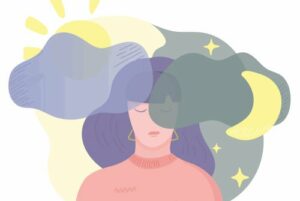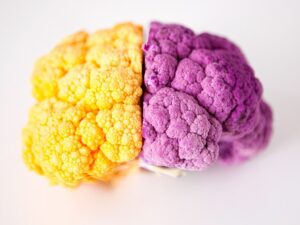Bipolar disorder is a mental illness that affects millions of people all over the world. It can be difficult to diagnose, as it shares many symptoms with other mental illnesses. In this blog post, we will discuss bipolar II disorder: what it is, how to treat it, and some of the challenges associated with living with bipolar 2. If you think you or someone you know may have bipolar II disorder, please seek professional help. There is no shame in admitting that you need help; in fact, it takes a lot of courage to do so!
Contents
What Is Bipolar II Disorder?
 Bipolar II is also known as bipolar 2 or manic depression. It is a mental illness that causes people to have mood swings. The main difference between bipolar II and other types of bipolar disorder is the intensity of the person’s moods. People with bipolar II will have episodes of hypomania, which are less severe than full-blown mania. They may also experience periods of depression.
Bipolar II is also known as bipolar 2 or manic depression. It is a mental illness that causes people to have mood swings. The main difference between bipolar II and other types of bipolar disorder is the intensity of the person’s moods. People with bipolar II will have episodes of hypomania, which are less severe than full-blown mania. They may also experience periods of depression.
Moreover, bipolar 2 is believed to be caused by a combination of genetic and environmental factors. It is more common in women than men and usually starts in young adulthood. However, in bipolar 2 disorder, the depressive episodes are more frequent than hypomanic episodes.
For example, a person who has bipolar 2 will likely have one or two depressive episodes for every hypomanic episode. It is important to seek help if you think you may have bipolar disorder. If you left the condition untreated, it will likely get worse over time.
In fact, studies suggest that bipolar disorder seems to be more common now than it was a few decades ago. This may be due to increased awareness and better diagnosis.
What Are The Symptoms Of Bipolar 2?
The signs and symptoms of bipolar II disorder are similar to those of bipolar I disorder. However, in bipolar II disorder, the “up” moods never reach full-blown mania. These less-intense episodes of elation are called hypomanic episodes.
Bipolar II disorder is characterized by one or more major depressive episodes that alternate with at least one hypomanic episode. However, there may also be periods of normal mood in between these episodes.
Symptoms of a depressive episode include:
- Persistent sad, anxious, or “empty” mood
- Loss of interest or pleasure in activities that were once enjoyed
- Decreased energy and fatigue
- Difficulty concentrating, remembering, or making decisions
- Insomnia or hypersomnia (excessive sleeping)
- Overeating or appetite loss
- Thoughts of death or suicide, or attempted suicide
Symptoms of a hypomanic episode include:
- Inflated self-esteem or grandiosity
- Decreased need for sleep
- More talkative than usual, pressure to keep talking
- Flight of ideas or racing thoughts
- Distractibility
- Increase in goal-directed activity or psychomotor agitation
- Excessive involvement in pleasurable activities that have a high potential for painful consequences (e.g., engaging in unrestrained buying sprees, sexual indiscretions, or foolish business investments)
These symptoms of bipolar 2 can disrupt your life and make it hard to function. If you think you may have bipolar II, talk to your doctor. There are treatments that can help. You need to be diagnosed by a mental health professional to get treatment.
Bipolar II is often misdiagnosed as depression because the depressive episodes are more common and last longer than the hypomanic episodes. If you are diagnosed with bipolar II, it’s important to be treated by a mental health professional who is experienced in treating bipolar disorders.
What Causes Bipolar II Disorder?
 It is often said that bipolar II disorder is caused by a chemical imbalance in the brain. However, it is not yet known what exactly causes this imbalance. There are many theories and much research still needs to be done in order to determine the exact cause of bipolar II disorder.
It is often said that bipolar II disorder is caused by a chemical imbalance in the brain. However, it is not yet known what exactly causes this imbalance. There are many theories and much research still needs to be done in order to determine the exact cause of bipolar II disorder.
There are several factors that may contribute to the development of bipolar II disorder. These include:
Genetic factors
Bipolar II disorder tends to run in families, so it is believed that there may be a genetic predisposition for the disorder. Because of this, it is often said that bipolar II disorder is hereditary. For instance, if a parent has bipolar II disorder, their child has a greater chance of developing the disorder as well.
Brain structure
There is some evidence that people with bipolar II disorder have differences in the way their brains are structured. It is not yet known exactly what these differences are, but they may be related to the way the brain processes information or regulates mood.
Trauma
It is believed that trauma can play a role in the development of bipolar II disorder. This may include things like:
- abuse
- neglect
- other traumatic experiences
These experiences can often lead to changes in the way the brain functions, which may contribute to the development of bipolar II disorder.
While the exact cause of bipolar II disorder is not yet known, there are many theories about what may contribute to its development. If you think you or someone you know may have bipolar II disorder, it is important to talk to a doctor or mental health professional. They will be able to assess the situation and provide you with the help you need.
How Is Bipolar 2 Different From Other Types?
 Bipolar 2 is different from other types of bipolar disorder in that the person experiences episodes of hypomania instead of full-blown mania. With hypomania, a person may feel very good, be highly productive, and have lots of energy.
Bipolar 2 is different from other types of bipolar disorder in that the person experiences episodes of hypomania instead of full-blown mania. With hypomania, a person may feel very good, be highly productive, and have lots of energy.
But they don’t lose touch with reality or become psychotic-like people who experience full-blown mania. Bipolar II is also different from other types in that the person experiences more episodes of depression than they do hypomania.
The ratio of depression to hypomania can be as high as four to one.
This type was formerly called “bipolar II disorder” or “soft bipolar disorder.”
Bipolar II is not a milder form of bipolar I, though. Both types are serious and need treatment. If you have bipolar II, you may:
- Experience long periods of depression
- Be prone to anxiety or panic attacks
- Abuse of alcohol or drugs
- Have a family history of bipolar disorder or other mental illness
- Suffer from seasonal affective disorder (SAD)
So, bipolar II is different from other types of bipolar disorder in various terms You have to be careful with this type as it can be very harmful if not taken care of carefully. With the help of a mental health professional, you can learn to control your bipolar II and live a healthy, happy life.
How To Treat?
The treatment options for bipolar II are both medical and psychological. Some of these options are listed below:
Medication
This is often the first course of treatment for bipolar II. The most common type of medication used to treat bipolar II is a mood stabilizer. These can help to even out the highs and lows associated with the disorder. Other types of medication that may be used include antipsychotics, antidepressants, and anti-anxiety medications.
Moreover, the medications are not a cure for bipolar II, but they can help to manage the symptoms. As these medications work to stabilize the mood, it is important to continue taking them even when feeling better.
However, you should remember that everyone’s experience with medication is different, and it may take some time to find the right combination of medications that work for you.
Psychotherapy
This is an important part of treatment for bipolar II. It can help people to understand the disorder and learn how to cope with the symptoms. There are various types of psychotherapy that can be used to treat bipolar II. These include:
- Cognitive-behavioral therapy
- Interpersonal therapy
- Family-focused therapy
In addition to helping people understand the disorder, psychotherapy can also help people develop healthy coping mechanisms. This can be especially helpful during periods of stress or when dealing with triggers. In fact, studies have shown that psychotherapy can be just as effective as medication in treating bipolar II.
Lifestyle changes
 There are also lifestyle changes that can help to manage the symptoms of bipolar II. Some of these include:
There are also lifestyle changes that can help to manage the symptoms of bipolar II. Some of these include:
- Get regular exercise
- Eat a healthy diet
- Limit alcohol intake
- Avoid drugs
- Get enough sleep
- Make sure to take medications as prescribed
- Have a support system
All of these lifestyle changes can help to improve the symptoms of bipolar II. In addition, they can also help to prevent manic or depressive episodes from occurring.
Bipolar II is a serious disorder that can be difficult to manage. However, with proper treatment, it is possible to live a healthy and fulfilling life. If you think you may be suffering from bipolar II, be sure to talk to your doctor. They can help you get the treatment you need.
Are There Any Ways to Prevent Bipolar II?
People often ask if there are ways to prevent bipolar II. While there is no sure way to completely prevent the disorder, there are things that can be done to help reduce the risk. Some of these include:
- Learn about your family history. If you have a family member with bipolar II, you may be at increased risk for the disorder.
- Be aware of your triggers. Things like stress, sleep deprivation, and substance abuse can trigger episodes of mania or depression.
- Get treatment for any underlying mental health conditions. Conditions like anxiety and depression can increase your risk for bipolar II.
- Reduce stress. Stress can trigger episodes of mania or depression. You can do this by creating a schedule, setting boundaries, and taking time for yourself.
If you think you may be at risk for bipolar II, talk to your doctor. They can help you make a plan to reduce your risk and get treatment if needed. For prevention, it is really important to learn about your triggers and do what you can to avoid them. Managing stress is also key.
These things will definitely help you to manage your symptoms and will also help you to feel better about yourself.
Conclusion
To conclude, bipolar II is a serious mental illness that requires treatment. If you think you may have bipolar II, talk to your doctor. There are many effective treatments available, and with the right help, you can live a full and productive life. Moreover, you need to understand that bipolar II is a lifelong condition, and you will need to manage it throughout your life. But with the right support, you can live well with bipolar II.
For more information, please contact MantraCare. Bipolar disorder is a mental illness characterized by extreme shifts in mood, energy, and activity levels. If you have any queries regarding Online Bipolar Disorder Counseling experienced therapists at MantraCare can help: Book a trial Bipolar Disorder therapy session


